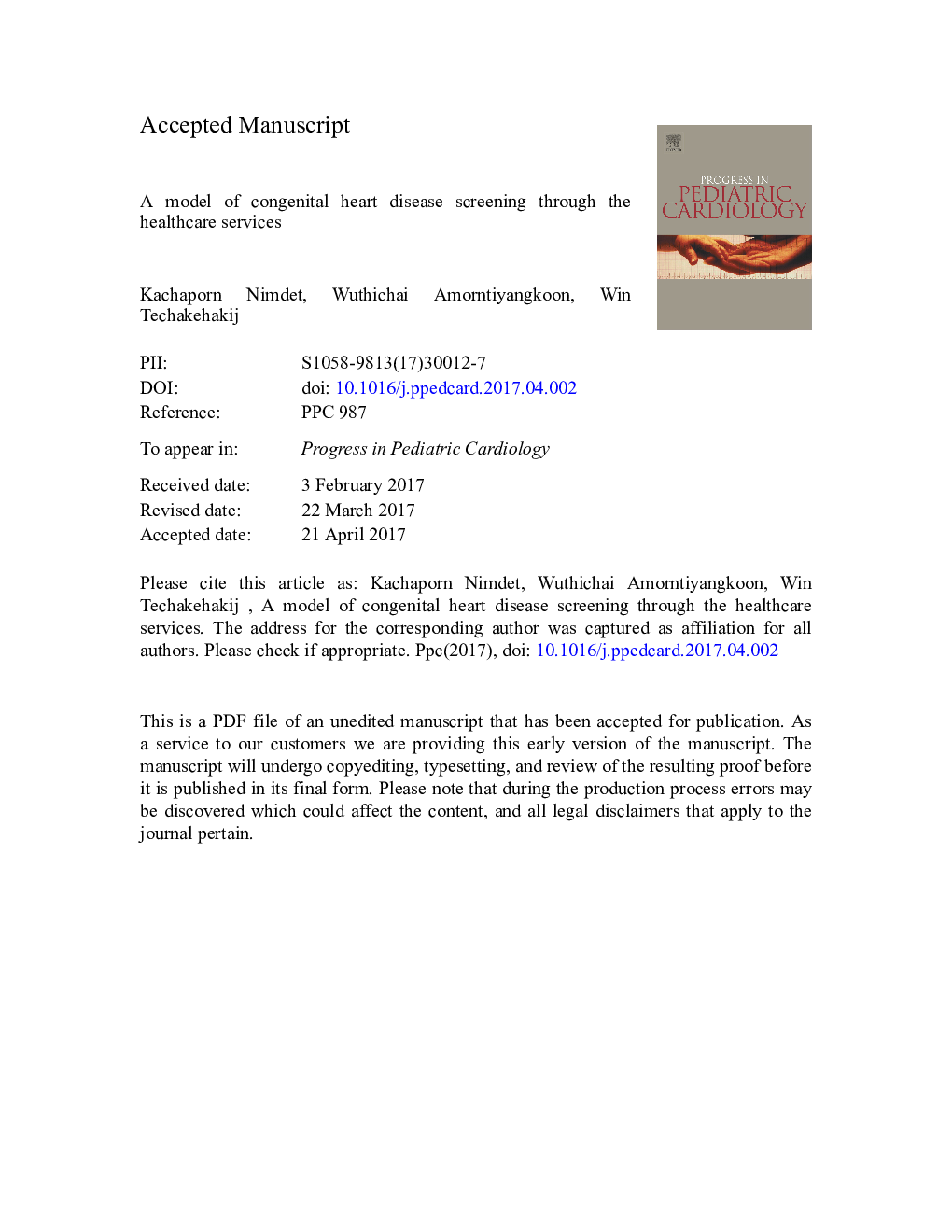| Article ID | Journal | Published Year | Pages | File Type |
|---|---|---|---|---|
| 5619688 | Progress in Pediatric Cardiology | 2017 | 22 Pages |
Abstract
Congenital heart disease (CHD) causes high morbidity and mortality. Early diagnosis facilitates optimal therapy and prevention of complications. In undeveloped and developing countries, the availability of pediatricians is very limited to perform a physical examination of and treat every child. Therefore, healthcare workers and nurses who work in primary healthcare hospitals have an important role in communities. A model of CHD screening was established for healthcare workers and nurses to provide them with skills in physical examination and in recognizing the signs related to cardiovascular diseases, with the aim of rapid detection through the routine healthcare services. The model comprises participation in a training course, screening in elementary schools and re-evaluation of children suspected of having CHD by pediatric cardiologists. A total of 23,633 children in 179 elementary schools were screened by healthcare workers and nurses. Of 312 children suspected of having CHD, 83 had innocent murmurs and 38 had CHD. The positive predictive values for CHD and cardiac murmur detection were 13.29% and 49.59%, respectively. The utilization of an effective model provides an opportunity to acquire the skills needed to increase the potential of detecting CHD. Acquiring these skills not only increases the chances of detection in school children, but also in infants and toddlers with CHD during routine practice in primary healthcare hospitals.
Keywords
Related Topics
Health Sciences
Medicine and Dentistry
Cardiology and Cardiovascular Medicine
Authors
Kachaporn Nimdet, Wuthichai Amorntiyangkoon, Win Techakehakij,
